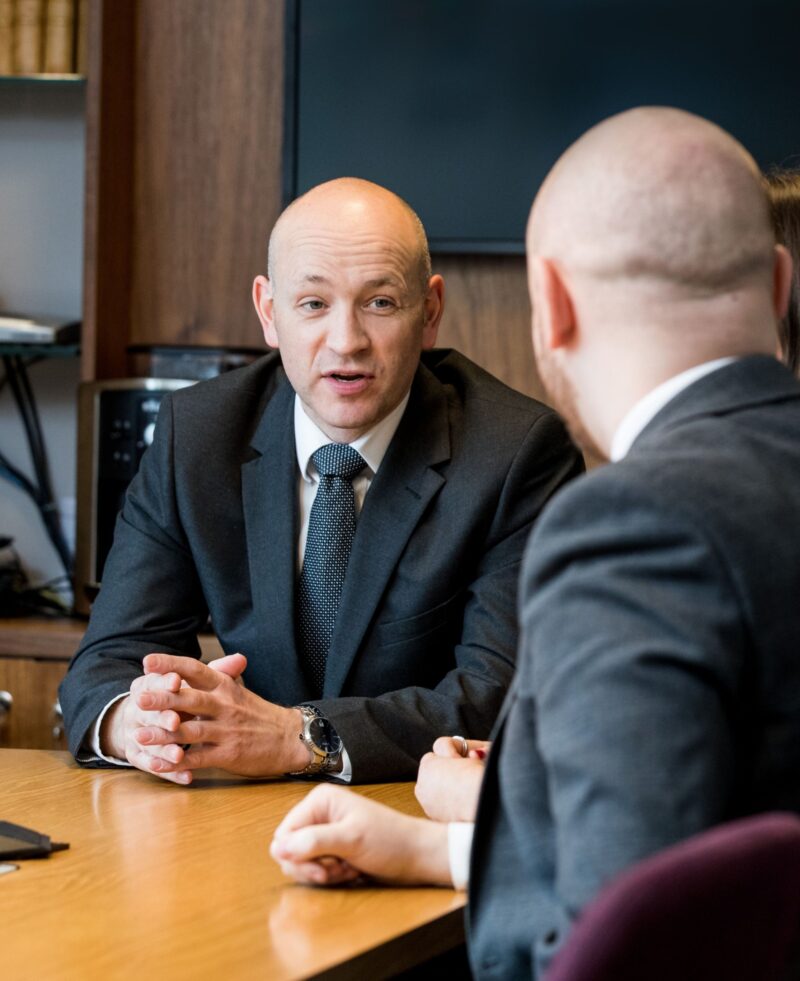
Ledingham Chalmers
Sarah Stuart, Partner




About you
Tell us a bit about your organisation (who are you, where do you operate)
With offices in Aberdeen, Edinburgh, Inverness, and Stirling, we’re a full-service law firm with clients including multinational companies and high potential SMEs across a range of sectors such as oil and gas and renewables.
We have been involved in the global energy industry for over 30 years. What’s more, our membership of Lawyers Associated Worldwide means we help clients access strategic legal support globally.
What is keeping you busy currently? What large projects are you working on?
Our teams across the board are seeing lots of activity not least in the staple corporate and commercial practice areas.
For example, our corporate team has had a promising start to the year, with January alone seeing the completion of three company acquisitions. A high percentage of our transactions have an international element and there is appetite for acquiring well-run businesses with protected intellectual property.
Looking ahead, our long-standing energy niche continues to evolve into decommissioning and energy transition work with interest in both businesses with technology that can help with the journey to net zero or those with strong ESG credentials.
Plus, our construction team has extensive experience in contentious and non-contentious construction and engineering law working with a range of clients including organisations in the energy sector supply chain. Work includes the analysis and negotiation of contracts as well as procurement advice.
What are some of the opportunities/challenges you see for your organisation in the future?
We’ve set ourselves an ambitious growth target, which means a focus both on strategic acquisitions as well as having the right people in the right roles across our offices. The challenge is to adapt and evolve — continue to provide what we know is a valuable service for clients — against the backdrop of an incredibly competitive recruitment and client retention market.
How would you describe the company culture? Do you have any specific shared values?
Our culture’s important to us and we’re proud of what we have created. Our core values guide how we work with each other, and our clients. They are — treat others well; satisfy and impress our clients; keep learning; give something back; one team.
Find out more:
www.ledinghamchalmers.com
Twitter
LinkedIn
Facebook
Instagram

About your OEUK membership
As an organisation how is OEUK membership helping your business?
Strategically, it’s beneficial to be involved in high-level discussions around what’s happening in the energy transition market. On an operational level, regular contact with key representatives across the industry is incredibly helpful, as is access to the likes of LOGIC standard contracts.
Which OEUK event did you most enjoy and why?
There’s a wide variety of events, all of which prove popular with our teams. For example, the young professionals information events attracted great feedback from colleagues keen to hear about industry issues and network with their peers.
OEUK has over fourteen forums, which forum do you attend and what do you like most about that particular forum?
We’re involved in a few of the forums including decommissioning, joint legal issues, energy transition, employment and skills and supply chain decommissioning.
Across the board, the benefit is hearing people’s views about the industry, in particular what challenges are coming up, lessons learnt and how these might be tackled.
We also have two senior representatives on the advisory council.

Future of the industry
What are the biggest net zero changes you have seen in our industry?
Continued, sustained research and development will be key.
Our firm has a long history of providing legal support to the renewables sector, including to AREG since its inception nearly 20 years ago. We’ve also supported several rural cross-over projects. There’s no doubt that projects seen a couple of decades ago as “fringe” activities are now mainstream, but there’s still much to be done.
How do you see the industry looking in 20 years?
It’ll have transformed.
There are two things happening here on the route to meet the country’s decarbonisation journey. On the one hand, there’s a move to grow the footprint of more “traditional” renewables such as wind (with larger windfarms further offshore and floating windfarms) and tidal power but there will be more development in other technologies promising energy solutions such as hydrogen. Carbon capture and storage projects like Acorn, which will hopefully be given the go ahead, will deal with ongoing emissions.
Between now and the next 20 years, there will also be considerable decommissioning activity as many fields reach end of life and licences come to an end.
The green freeports are good examples of what can be done with the UK and Scottish governments working together and, if that continues, there are great opportunities to stimulate growth.
There is still much to be done to clarify how businesses can get involved, but we expect to support clients Scotland-wide (and beyond) through the Inverness and Cromarty Firth Green Freeport – whether support touches on, joint venturing; being part of the supply chain; or looking for corporate or commercial property acquisitions.
Critical to accelerating the transition and investment will be moving Acorn CCS into Track 1 status (with the aim of commercial operations commencing in 2027) and launching the Track 2 cluster selection process, allowing that to move forward as part of Track 1. We see all of that as having the potential to unlock billions of pounds of private sector.
We also await with interest future UK Government announcements related to investment zones.
How is your organisation driving the transition to net zero?
The key here is net zero falls within everyone’s remit — beyond just the leadership team. As a professional services firm, we’re at an early stage in our journey but have a steering group in place to look, in particular, at platforms for employee engagement, as well as having senior representatives actively participating in forums such as the CBI Scotland net zero Working Group (which has a remit is to help a wide variety of businesses identify the best practice and means of delivering net zero).





